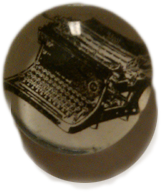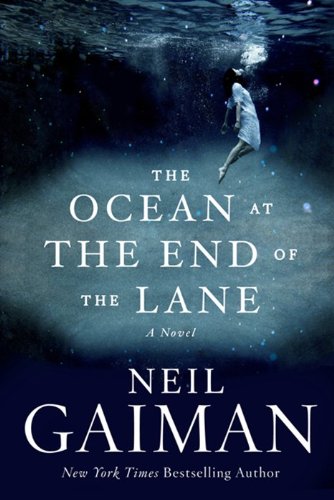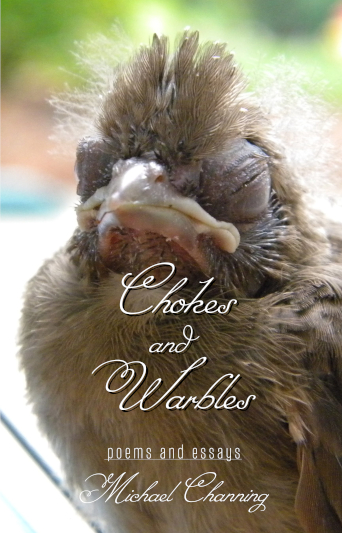
|
|
The Ocean at the End of the Lane
by Neil Gaiman
Reading Review by Michael Channing
To a child, adults are fearsome, powerful beings. They are the masters of a world you can't hope to comprehend. You really on them for everything. But they are so strange. They leave everyday to do jobs you can't define. They're allowed to do all the things they tell you are dangerous. They should be happy with all the freedom and possessions that you are denied, but at times adults seen just as powerless and lost as you. Those complications and contradictions are the heart of this book. In this book, there is a monster we see in two forms. As large and frightening as it is in its original form, it is far more dangerous and destructive in the insidious guise of a grownup.
When the monster does appear in human form and begins to torment the seven-year-old narrator, the boy attempts to escape into books. He admits as he tell his story that books have always been his escape, the characters his only friends and mentors. In books, children have the power to reveal spies, to stop smugglers, to defeat nefarious adults who would otherwise continue their crimes undetected. As he disappears into wishful thinking, the monster with a beautiful woman’s face lives in his house, tearing apart his parents’ marriage, sending evil tendrils out into the community to ruin more lives, gaining strength and influence.
Our hero, having played an unwitting part in giving the monster access to our world, wants to drive it out and make his home safe again. But over and over it’s not the alienness of the being’s otherworld form that stops him in his tracks (though that does happen), it’s her appearance as an adult, with all the backing of the adult world, that freezes him with fear. Of course monsters are scary, but it’s the hero’s job to oppose and overthrow them. Grownups, however, are the pillars of normalcy, the makers of laws, the providers and protectors. To take arms against one, even one of clearly evil intent, is to attack the very binding elements of reality. That’s the true horror of this book, that sometimes reality can fray and come unraveled. In the most painful scene, the one that crawls under your skin and burns, the boy’s father sides with the monster and attempts to drown the boy in the bathtub. You ache for the boy as everything he ever held true and sacred is stolen from him and corrupted.
This is a fantasy story that doesn't lean too heavily on familiar fantasy tropes. It attempts to show you something new while still pulling from the deep literary well of myth and fable. The boy befriends a trio of females, a girl a few years older than him (in appearance anyway), her mother, and her grandmother. You might recognize this as the classic triple goddess of mother, maiden, and crone. But don't worry if you've never heard of them, Gaiman has folded the underlying mythology seamlessly into the modern setting off this story. That's one of the things he does really well. He builds his worlds from parts you've never seen before in a way that makes them feel new but comfortable.
The story unspools slowly, taking unexpected, surprising turns. When we get to the final act, a lot of what came before has been reconciled, and it feels like we've entered a new story. That's part of the subtext. Memories are made of events cobbled together. One incident sparks another till it’s hard to figure out the starting point. One of Gaiman’s fascinations is with Story itself: how we construct stories and pass them along to others, what we gain from the act of making up harmless and entertaining lies, and why certain types of stories have the longevity they do. There's a lot you can read into how this book is presented. In chapter one, we see the boy grown up, having gone through several adult relationships, having had a career, and presently having left a funeral of someone close. He returns to the farm at the end of the lane with little memory of the incredible adventures he had there. As he looks out over the duck pond that his friend used to call her ocean, he remembers everything. Why the bookend storytelling? Why not just start off with the boy at seven? I think Gaiman is tuning into the idea that a real childhood perspective is impossible to capture. Children don't have the cognitive abilities or language skills to explain what the world is like through their eyes. We only know childhood by looking back on it as adults. So while the story we hear sounds like a real kid's remembrances, it's impossible not to have it colored by the years that passed since the events of the narrative. We think children are the only ones to see things purely, but we only have that thought when we reach maturity.
The magic in this book is amazing. I would recommend this book to any writer as a primer on how to properly use magic. It works in a subtle way with very little explanation of the rules that govern it. There is some altering of reality, but mostly what it does is alter your perception of reality. If you can't remember an event, did it actually happen? What we believe becomes our reality. So in effect, our memories are stories we tell to ourselves. We cut out the parts we can't bear to face and highlight the events of our lives that lend the most meaning to what would otherwise be a random series of happenings. The parts we mentally edit out eventually fade into nothingness, and what we’re left with becomes reality. Our lives don't turn into stories, our stories turn into our lives. To quote Queen, it's a kind of magic, the way we create ourselves out of language. Call something a monster, and it may be impossible to face it down. But call it a flea, and it loses its power to frighten you. Call a pond an ocean, and that's what it becomes. Words have the power to shape your life, just as this book has the power to shape your dreams. As well as a nightmare or two.

More Reading Reviews
|
|

|

|

|

|

|
Novel November |
The Border
|
Green Shadows,
|
God Bless You,
|
Do Androids
|
A Night in the
|


